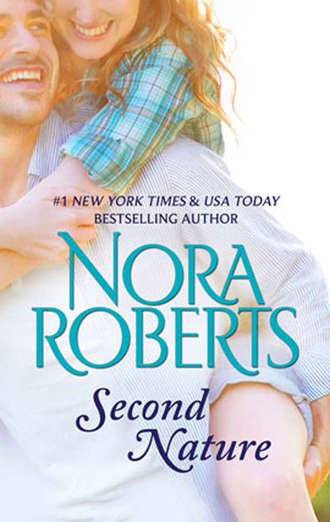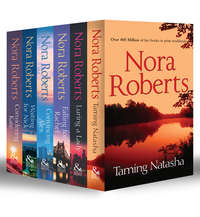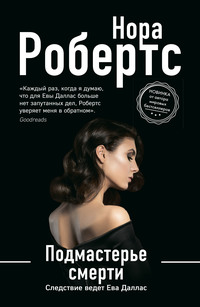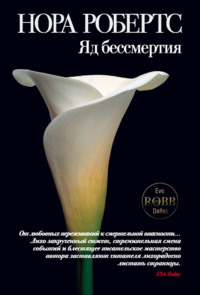
Полная версия
Second Nature: the classic story from the queen of romance that you won’t be able to put down
“No. My profession is words—putting words together so that someone who reads them is entertained, intrigued and satisfied with a tale. And tales spring from imagination rather than hard fact.” He sipped wine himself and approved it. “The teller of the tale is nothing compared to the tale itself.”
“Modesty?” Lee asked with a trace of scorn she couldn’t prevent.
The scorn seemed to amuse him. “Not at all. It’s a matter of priorities, not humility. If you knew me better, you’d understand I have very few virtues.” He smiled, but Lee told herself she’d imagined that brief predatory flash in his eyes. Imagined, she told herself again and shuddered. Annoyed at her own reaction, she held out her wineglass for a refill.
“Have you any virtues?”
He liked the fact that she struck back even when her nerves were racing. “Some say vices are more interesting and certainly more entertaining than virtues.” He filled her glass to just under the rim. “Would you agree?”
“More interesting, perhaps more entertaining.” She refused to let her eyes falter from his as she drank. “Certainly more demanding.”
He mulled this over, enjoying her quick response and her clean, direct thought-patterns. “You have an interesting mind, Lenore; you keep it exercised.”
“A woman who doesn’t finds herself watching other people climb to the top while she fills water glasses and makes the coffee.” She could have cursed in frustration the moment she’d spoken. It wasn’t her habit to speak that freely. The point was, she was here to interview him, Lee reminded herself, not the other way around.
“An interesting analogy,” Hunter murmured. Ambition. Yes, he’d sensed that about her from the beginning. But what was it she wanted to achieve? Whatever it was, he mused, she wouldn’t be above stepping over a few people to get it. He found he could respect that, could almost admire it. “Tell me, do you ever relax?”
“I beg your pardon?”
“Your hands are rarely still, though you appear to have a great deal of control otherwise.” He noted that at his words her fingers stopped toying with the stem of her glass. “Since you’ve come into this room, you haven’t stayed in one spot more than a few seconds. Do I make you nervous?”
Sending him a cool look, she sat on the plush sofa and crossed her legs. “No.” But her pulse thudded a bit when he sat down beside her.
“What does?”
“Small loud dogs.”
He laughed, pleased with the moment and with her. “You’re a very entertaining woman.” He took her hand lightly in his. “I should tell you that’s my highest compliment.”
“You set a great store by entertainment.”
“The world’s a grim place—worse, often tedious.” Her hand was delicate, and delicacy drew him. Her eyes held secrets, and there was little that intrigued him more. “If we can’t be entertained, there’re only two places to go. Back to the cave, or on to oblivion.”
“So you entertain with terror.” She wanted to shift farther away from him, but his fingers had tightened almost imperceptibly on her hand. And his eyes were searching for her thoughts.
“If you’re worried about the unspeakable terror lurking outside your bedroom window, would you worry about your next dentist appointment or the fact that your washer overflowed?”
“Escape?”
He reached up to touch her hair. It seemed a very casual, very natural gesture to him. Lee’s eyes flew open as if she’d been pinched. “I don’t care for the word escape.”
She was a difficult combination to resist, Hunter thought, as he let his fingertips skim down the side of her throat. The fiery hair, the vulnerable eyes, the cool gloss of breeding, the bubbling nerves. She’d make a fascinating character and, he realized, a fascinating lover. He’d already decided to have her for the first; now, as he toyed with the ends of her hair, he decided to have her for the second.
She sensed something when his gaze locked on hers again. Decision, determination, desire. Her mouth went dry. It wasn’t often that she felt she could be outmatched by another. It was rarer still when anyone or anything truly frightened her. Though he said nothing, though he moved no closer, she found herself fighting back fear—and the knowledge that whatever game she challenged him to, she would lose because he would look into her eyes and know each move before she made it.
A knock sounded at the door, but he continued to look at her for long silent seconds before he rose. “I took the liberty of ordering dinner,” he said, so calmly that Lee wondered if she’d imagined the flare of passion she’d seen in his eyes. While he went to the door, she sat where she was, struggling to sort her own thoughts. She was imagining things, Lee told herself. He couldn’t see into her and read her thoughts. He was just a man. Since the game was hers, and only she knew the rules, she wouldn’t lose. Settled again, she rose to walk to the table.
The salmon was tender and pink. Pleased with the choice, Lee sat down at the table as the waiter closed the door behind him. So far, Lee reflected, she’d answered more questions than Hunter. It was time to change that.
“The advice you gave earlier to struggling writers about blocking out time to write every day no matter how discouraged they get—did that come from personal experience?”
Hunter sampled the salmon. “All writers face discouragement from time to time. Just as they face criticism and rejection.”
“Did you face many rejections before the sale of The Devil’s Due?”
“I suspect anything that comes too easily.” He lifted the wine bottle to fill her glass again. She had a face made for candlelight, he mused as he watched the shadow and light flicker over the cream-soft skin and delicate features. He was determined to find out what lay beneath, before the evening ended.
He never considered he was using her, though he fully intended to pick her brain for everything he could learn about her. It was a writer’s privilege.
“What made you become a writer?”
He lifted a brow as he continued to eat. “I was born a writer.”
Lee ate slowly, planning her next line of questions. She had to move carefully, avoid putting him on the defensive, maneuver around any suspicions. She never considered she was using him, though she fully intended to pick his brain for everything she could learn about him. It was a reporter’s privilege.
“Born a writer,” she repeated, flaking off another bite of salmon. “Do you think it’s that simple? Weren’t there elements in your background, circumstances, early experiences, that led you toward your career?”
“I didn’t say it was simple,” Hunter corrected. “We’re all born with a certain set of choices to make. The matter of making the right ones is anything but simple. Every novel written has to do with choices. Writing novels is what I was meant to do.”
He interested her enough that she forgot the unofficial interview and asked for herself, “So you always wanted to be a writer?”
“You’re very literal-minded,” Hunter observed. Comfortable, he leaned back and swirled the wine in his glass. “No, I didn’t. I wanted to play professional soccer.”
“Soccer?”
Her astonished disbelief made him smile. “Soccer,” he repeated. “I wanted to make a career of it and might have been successful at it, but I had to write.”
Lee was silent a moment, then decided he was telling her precisely the truth. “So you became a writer without really wanting to.”
“I made a choice,” Hunter corrected, intrigued by the orderly logic of her mind. “I believe a great many people are born writer or artist, and die without ever realizing it. Books go unwritten, paintings unpainted. The fortunate ones are those who discover what they were meant to do. I might have been an excellent soccer player; I might have been an excellent writer. If I’d tried to do both, I’d have been no more than mediocre. I chose not to be mediocre.”
“There’re several million readers who’d agree you made the right choice.” Forgetting the cool facade, she propped her elbows on the table and leaned forward. “Why horror fiction, Hunter? Someone with your skill and your imagination could write anything. Why did you turn your talents toward that particular genre?”
He lit a cigarette so that the scent of tobacco stung the air. “Why do you read it?”
She frowned; he hadn’t turned one of her questions back on her for some time. “I don’t as a rule, except yours.”
“I’m flattered. Why mine?”
Конец ознакомительного фрагмента.
Текст предоставлен ООО «ЛитРес».
Прочитайте эту книгу целиком, купив полную легальную версию на ЛитРес.
Безопасно оплатить книгу можно банковской картой Visa, MasterCard, Maestro, со счета мобильного телефона, с платежного терминала, в салоне МТС или Связной, через PayPal, WebMoney, Яндекс.Деньги, QIWI Кошелек, бонусными картами или другим удобным Вам способом.









